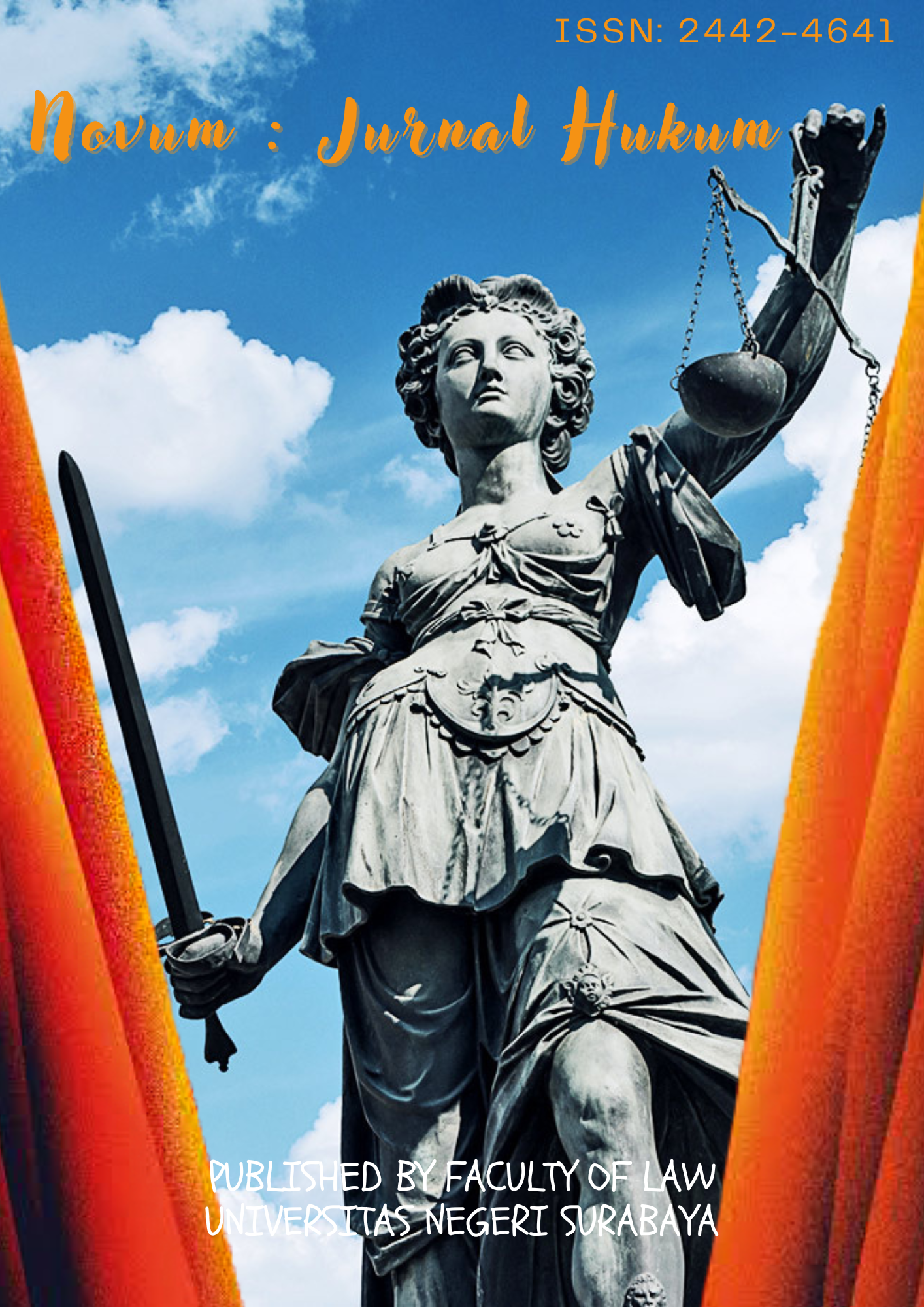Doctors’ Obligations Regarding Chemical Castration for Individuals Who Commit Child Sexual Abuse
DOI:
https://doi.org/10.2674/novum.v11i02.64243Abstract
Law No. 17 of 2016 concerning Child Protection contains chemical castration for perpetrators of child sexual violence in Article 81 paragraph (7) of the Law. The implementation of chemical castration on the orders of the prosecutor is carried out by a doctor in accordance with Article 9 letter b of Government Regulation No. 70 of 2020. This task is contrary to the doctor’s oath, the issuance of the MKEK PB IDI fatwa in 2016 contains the position of the medical profession agreeing or disagreeing in responding to chemical castration, while the task of castration has become a doctor's obligation as a State duty on the orders of the law with the legal umbrella of Article 50 of the Criminal Code and has the risk of sanctions if they refuse in accordance with Article 216 paragraph (1) of the Criminal Code. Thus, further discussion is needed regarding the obligations of doctors as implementers of chemical castration and legal efforts by doctors to avoid their duties as implementers of chemical castration. The research method is normative by taking a legislative and conceptual approach. The collection technique used is a literature study with a prescriptive analysis technique. The results and discussion show that doctors are obliged to carry out the order of the law regarding chemical castration, especially if they have the status of a civil servant who is bound by the Civil Servant Discipline to carry out state duties. If there are doctors who refuse by referring to the MKEK PB IDI fatwa No. 1 of 2016, they can file a judicial review to the Supreme Court regarding the task given causing a heavy mental burden in the form of violating the doctor's oath with the chemical castration action in Article 9 letter b of Government Regulation No. 70 of 2020.
Downloads
Downloads
Published
Issue
Section
License
Copyright (c) 2024 Fenty Dwi Yuliana, Dr. Pudji Astuti, S.H., M.H.

This work is licensed under a Creative Commons Attribution-NonCommercial-ShareAlike 4.0 International License.
 Abstract views: 59
,
Abstract views: 59
, PDF Downloads: 0
PDF Downloads: 0



